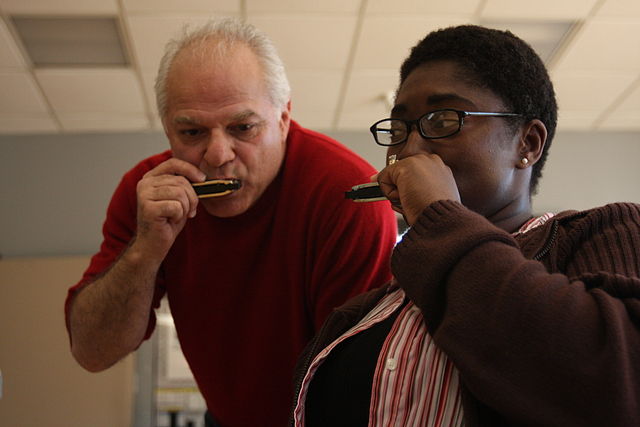In musical circles, the word “technique” often refers to someone’s ability navigate their instrument effectively.
Many younger players – especially those that progress quickly at the beginning – are told that they have a “natural technique”. This is often phrased as a compliment, and comes from a family member, friend, or band director.
It feels like being told that you’re “naturally” good at something would be a compliment, but drawing on the idea of the “growth” and “fixed” mindset in Carol Dweck’s excellent book Mindset, it may actually do more long-term harm than good.
Beginner “Technique”
In the beginning of their studies, students receive instruction proper technique (in general). However, most of what beginning students actually do (again, in my experience) is simply what “feels right”.
This isn’t always bad, since some students (depending on background, physiology, etc) stumble upon things that work well. Other students – that receive the same instruction – may not be so successful.
This natural approach is how everyone begins, but it’s hard to call this “technique”. In my mind, “technique” needs to have some thought or idea about how and why it works. Simply “working hard” isn’t sufficient to qualify as a technique (but it is necessary to improve).
More Progress with Bad Technique
The ones that have trouble in the beginning are often the first to either quit (which is fine) or seek out help. The help can come from many sources: other students, a private teacher, or a director. These students – provided they work hard and commit to the practice of practice, usually develop rapidly.
The ones that have a more efficient natural approach (and are constantly told how good their “natural technique” is) are much more resistant to change (and improvement) – even when they need it.
They resist physical changes (since they feel strange), they resist easier music (since it hurts their ego), and because they have to expend more effort, they often resist practicing at all (which stalls all progress).
The Decision
At some point in every player’s development, they will hit the limit of what their natural approach can do.
At that point, it’s up to the player to decide how to proceed. Do they want to stay comfortable, or are they willing to push themselves to the next level by learning a new (and “un”natural) technique.
You can certainly encourage students to take the harder, more rewarding path, but you can’t make them.


Leave a Reply
You must be logged in to post a comment.